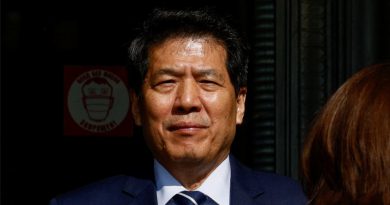US Supreme Court Greenlights Trump Move to Revoke Safe-Haven for Hundreds of Thousands of Migrants
Washington — In a major development that could impact hundreds of thousands of Latin American migrants, the U.S. Supreme Court has allowed the Trump administration to proceed — at least for now — with revoking temporary legal protections granted to citizens of Cuba, Haiti, Nicaragua, and Venezuela. The move marks a significant escalation in former President Donald Trump’s broader immigration crackdown.
The court’s brief and unsigned order did not provide reasoning, as is typical in emergency rulings. However, two liberal justices — Ketanji Brown Jackson and Sonia Sotomayor — issued a sharp dissent. Justice Jackson accused the majority of “botching” the legal balancing test, warning of “devastating consequences” for over 500,000 migrants who now face the threat of deportation.
The Temporary Protected Status (TPS) program had offered a two-year safe haven to people fleeing political turmoil, economic collapse, or natural disasters in their home countries. Critics of the administration’s policy say the sudden revocation could lead to the largest mass removal of legal residents in modern U.S. history.
Economic Impact and Humanitarian Concerns
Advocates and labor unions underscored the critical role these migrants play in the American economy, particularly in essential industries such as healthcare, construction, and manufacturing. At one auto parts factory, nearly one in five workers is reportedly under the TPS program.
“These are people who stepped up to support our economy during national shortages,” said one union representative. “Now the government is pulling the rug from under them.”
City governments and counties that have welcomed TPS holders joined legal challenges, citing potential “severe economic and societal harms” if the deportations proceed.
A Battle Between Executive Power and Judicial Oversight
The Trump administration maintains that the migrants’ continued presence is “against national interests,” and argues that courts have no authority to interfere. The Department of Homeland Security insists that the program, originally expanded by the Biden administration as a deterrent to illegal crossings, has instead backfired — encouraging more arrivals and straining immigration enforcement efforts.
Secretary of Homeland Security Kristi Noem, speaking earlier this year at a border security summit in Phoenix, stated that the administration is determined to “restore lawful order and national sovereignty.”
However, federal courts have shown resistance. A district judge in Massachusetts, Indira Talwani, ruled that early termination of TPS protections must be assessed individually, rather than through a mass cancellation. The 1st U.S. Circuit Court of Appeals agreed, temporarily halting the administration’s plan.
The Biden-era policy, now under attack, had sought to stabilize migration patterns by offering legal pathways to those escaping crises — a contrast to Trump’s strategy of swift deportation and tightened border enforcement.
Looking Ahead
Immigration rights groups are expected to continue legal challenges, with the case likely to return to the courts in full. In the meantime, over half a million people now face deep uncertainty about their futures in the U.S.
For families, employers, and communities across the country, the court’s decision marks a pivotal moment in the nation’s immigration debate — one that intertwines humanitarian responsibilities with questions of law, sovereignty, and national identity.



